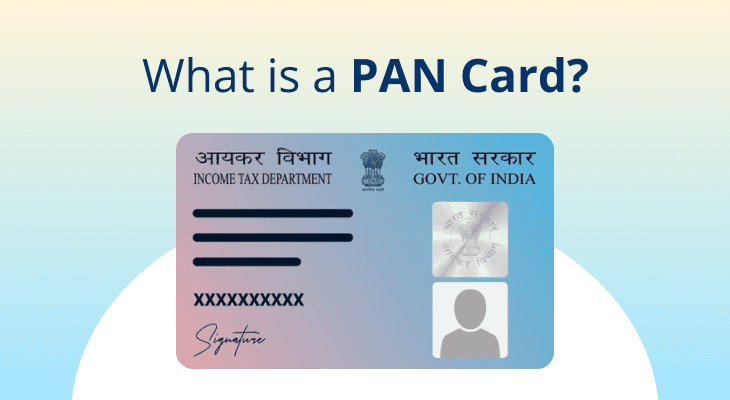
Senior Citizen FD: Key Features, Interest Rates & Advantages
Introduction
While you may give up a lot of things in the second innings of your life, like the 9 to 5 routine, commuting to work every day, and tight deadlines, some things you will continue, such as saving. Savings remain a part of your life for as long as you live, and a senior citizen FD (Fixed Deposit) can help you with that. Since your savings needs change as you grow older, having a designated savings vehicle becomes essential.
Let’s take a closer look at how FDs for senior citizens work and why they might be just what your retirement portfolio needs.
What is a senior citizen FD?
A senior citizen FD is a term deposit designed for individuals over the age of 60. In this type of deposit, you invest a lump sum amount, which stays invested for a pre-fixed number of years. The FD offers a fixed rate of return determined at the time of opening the deposit, which helps your capital grow steadily. The returns are assured and do not fluctuate based on market conditions, making it a low-risk investment.
Senior citizen FDs can be opened at a bank, NBFC (Non-Banking Financial Company), or even at the post office.
Key features of FD for senior citizens
Here are some key features of a senior citizen FD:
- Fixed and attractive interest rates: FDs for senior citizens offer a fixed interest rate that remains unchanged throughout the term. These rates are usually higher than regular FDs, which helps you earn more from your savings.
- Low risk: Since FDs are not linked to market movements, they provide assured returns. This makes them a low-risk and stable investment option that is suitable for people over 60.
- Flexible terms: You can choose the tenure of your FD based on your financial goals. Senior citizen FDs are available in both short-term and long-term options.
- Collateral for loans: Your FD can be used as collateral to secure a loan. This helps you cover your financial needs without breaking your investment.
- Premature withdrawal options: While early withdrawal may attract a penalty, some senior citizen FDs offer the option to withdraw funds before maturity. This can help you stay financially flexible during emergencies.
- Nomination feature: You can nominate a beneficiary to receive the FD amount at maturity, allowing you to leave behind a financial legacy.
- Renewal options: Senior citizen FDs can be set for auto-renewal. This allows you to reinvest in the FD at prevailing interest rates without extra paperwork.
Senior citizen FD rates: What to expect?
Senior citizen FD rates are typically higher than those offered on regular FDs or savings accounts. In most cases, the interest rate increases with the length of the tenure. So, the shorter the tenure, the lower the rate, and the longer the tenure, the higher the return.
However, rates can vary across different banks, NBFCs, and post offices. That is why it is important to compare all available options carefully and evaluate the best fit based on your financial goals and liquidity needs.
Benefits of investing in a senior citizen FD - H2
Here are some benefits of investing in a senior citizen FD:
- Low risk: As you grow older, your risk appetite tends to decrease, but the need for your wealth to grow remains. Senior citizen FDs offer low-risk growth without compromising on financial security.
- Tax benefits: FDs with a five-year tenure qualify for deductions of up to ₹1.5 lakh annually under Section 80C of the Income Tax Act, 1961. In addition, senior citizens can claim a deduction of up to ₹50,000 per year on interest income under Section 80TTB, making FDs even more attractive.
- Attractive interest rates: With higher interest rates, especially for longer tenures, senior citizen FDs offer the potential to outpace inflation and provide steady returns.
- Flexible options: You can choose the tenure that suits your needs, use the FD as collateral for loans, or opt for premature withdrawal in case of emergencies (subject to terms). Senior citizen FDs can be moulded to multiple circumstances.
How to choose the best FD for senior citizens?
Here is a step-by-step guide to selecting the best FD for senior citizens:
- Consider your needs: Think about when you might need to access the funds. If you do not have any immediate financial requirements, consider opting for a longer-tenure FD to benefit from higher interest rates. However, if you need funds in the short term, consider an FD with a shorter term so you can access your money without incurring penalties for early withdrawals.
- Compare multiple FDs: Do not settle for the first option you see. Comparing multiple FDs across banks, NBFCs, and post offices can help you identify the one with the most attractive rates and features.
- Check the fine print: Look into whether the FD allows premature withdrawals, auto-renewal, nomination facilities, and other features. This ensures flexibility down the line.
- Verify the institution: It is important to check the reputation of the institution with which you are opening the FD. While FDs are generally low-risk, the institution can still default. So, it is wise to choose a well-established and financially sound institution, whether a bank, NBFC, or post office.
How to open a senior citizen FD?
You can open a senior citizen FD by visiting your preferred bank, NBFC, or post office in person. Fill out the application form and submit it along with basic documents such as identity proof, address proof, and passport-size photographs for KYC (Know Your Customer/Client) compliance.
Alternatively, you can open a senior citizen FD online through the apps or websites of the concerned institution. For example, you can use the India Post Mobile Banking app if you are opening an FD with the post office. Similarly, most banks and NBFCs offer user-friendly apps and websites to help you complete the process digitally from the comfort of your home.
Taxation on senior citizen FDs
As mentioned earlier, FDs can offer dual tax benefits — on both the invested amount and the interest earned. Senior citizen FDs with a five-year tenure are eligible for tax deductions of up to ₹1.5 lakh per annum under Section 80C of the Income Tax Act, 1961. In addition, while the interest earned is taxed, senior citizens can claim a deduction of up to ₹50,000 per year on interest income under Section 80TTB.
Alternatives to senior citizen FDs
If you are looking for alternatives to senior citizen FDs, you can consider the following options:
- Savings accounts: While they do not offer the same interest rates as FDs and typically have lower returns, they are low-risk and can help preserve your wealth with easy access to funds.
- Debt mutual funds: Debt funds are relatively low-risk and can serve as an alternative to FDs. However, since they are market-linked, they carry slightly more risk compared to FDs.
- Rental income: Investing in real estate and earning rental income can be a good passive income strategy for senior citizens. They can provide you with a stable income. However, the initial investment can be high.
- Senior Citizens' Savings Scheme: This is a government-backed savings scheme for senior citizens that allows you to save for your financial needs. It has a maturity period of five years and offers fixed interest that helps you preserve wealth in retirement.
Conclusion
A senior citizen FD can be an attractive option for gradually building and preserving wealth. It is hassle-free and simple for older individuals to manage, as it requires no constant monitoring or active decision-making. You can lock in your money and relax until it matures. However, make sure to compare interest rates and verify the credibility of the institution before opening an FD.


